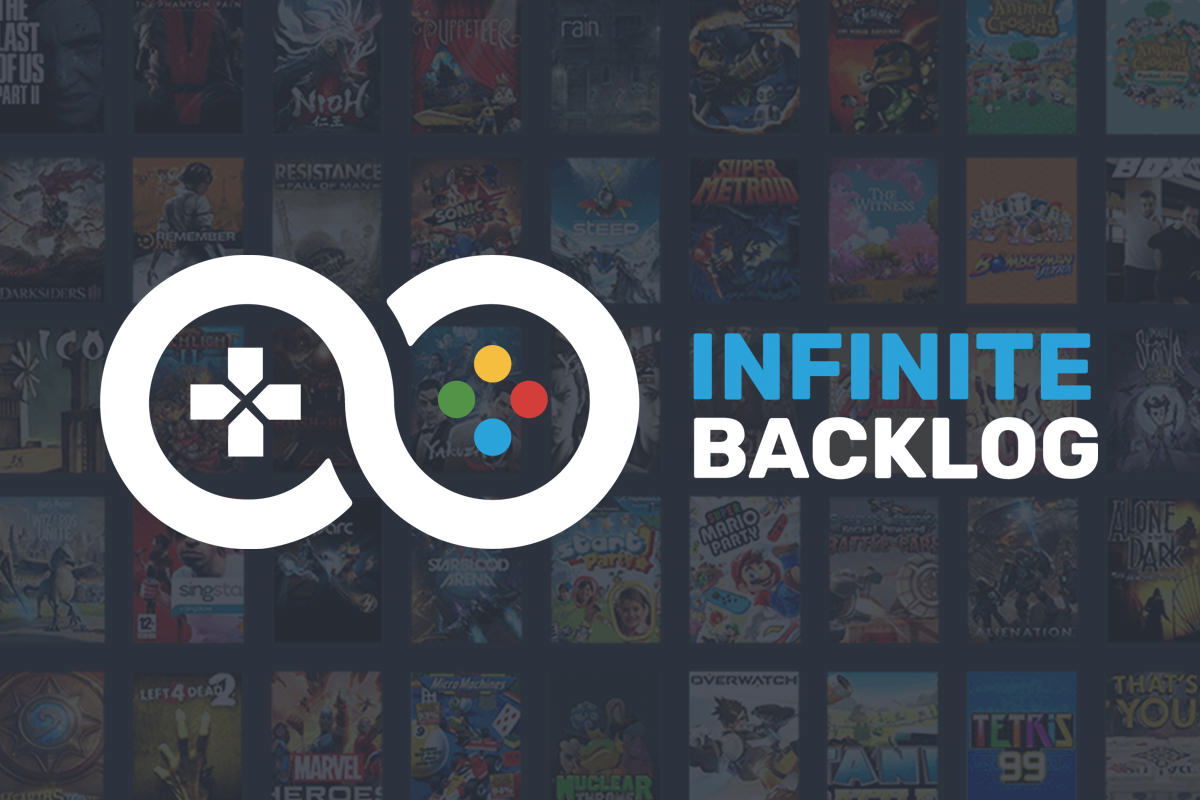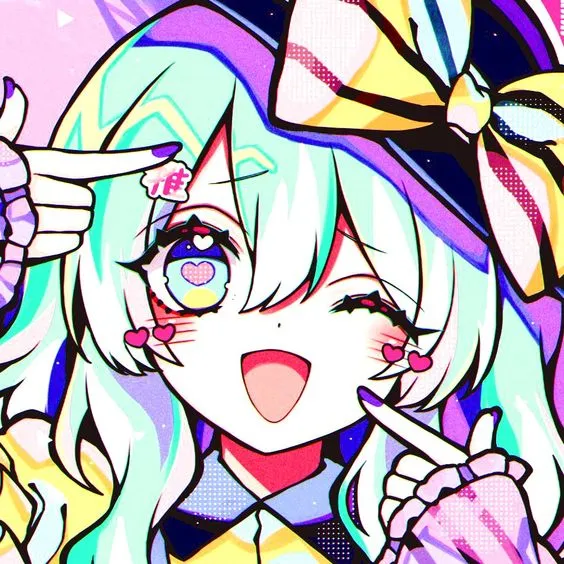Infinite Backlog gives you one place for your entire gaming collection and encourages you to play your games and get your backlogs under control. It provides a visual breakdown of your cross-platform collection, tracks gaming achievements and statistics and lets you connect with other gamers with the same games.
They are also in fediverse: @[email protected]
I don’t want to know anything about my habits
Interesting concept. Could be a useful service to people, could also just a means to analyse player habits for marketing and game design purposes.
Is anyone using this, and has it had any positive impact for you?
I can’t speak to this backlogging website specifically, it’s one among a fair number of somewhat similar offerings, but I’ve been using Backloggd for a couple years now.
What these apps/sites ultimately help with is getting your gaming library in check, if you also end up buying far too many games every time there’s a sale or if you want to keep track of your physical collection (although there are better sites for that).
Depending on the site’s focus, you might also get average completion times per game or user reviews.
I’ve actually found myself more interested in the “social” aspect of backloggd, eg user reviews (and making my own), ratings, user-made lists, because they’ve helped me discover games I wouldn’t have otherwise given a chance to or even heard about.I’ve used it for a while. It’s good enough but you can tell it’s still early days for the site. It’ll sync your achievements and playtime with steam and gog so that’s cool but then it’ll lag a bit maneuvering around the site and remind you that the products not fully done. They also offer a premium subscription where you can get early access to features and other promotions but I haven’t ever really felt the need to get that. Honestly my biggest hangup is that they’re just newer; if the site dies then I’m concerned with all of my tracking just going poof one day since I write little journal entries for them to remind me how I felt about certain games. Overall it’s fine, but maybe check out some others first.
Does it actually help you find others with similar taste? I’m yet to find any app that actually does this well.
Are you talking about an automatic curated suggestion list like how steam does? I don’t think there’s really anything like that. The site does have a community created lists section where people can create categories and add games to them while explaining their thoughts on it a little bit, like this.
Anyone know of an open source self hosted alternative for apps like this?
Ryot https://github.com/IgnisDa/ryot
It’s an attempt for an everything tracker.This looks interesting! Thanks for sharing!
Ooo thank you, gonna have to check this one out!
/c/selfhosting
Seems cool, but isn’t this a bit similar to backloggd?
I have no desire to catalog all of the games I don’t play. “Here is my pile of shame”
I have only 200something titles across my GOG and Steam libraries and I have played all of them and finished 90% at least.
I may be from another generation (I am in my 40s), but I don’t get the point of spending money on a title I don’t know if I will have ever time or interest to play.
Also, this feeds stale mechanics, since most titles are bought in bulk during sales that are usually centered around game categories.
I built a small python app to use howlongtobeat, steam data and isthereanydeal to select the best next title for me to play in terms of price per hour and (steamdb-style) rating.
I may be from another generation (I am in my 40s), but I don’t get the point of spending money on a title I don’t know if I will have ever time or interest to play.
The price isn’t static. If one buys during a sale then it’s available whenever one feels like playing. Much like stocking up on shirts during a sale at a clothes shop - clothing options are then available at home. Of course buying games one isn’t interested in would be strange behaviour but I don’t think anyone else is suggesting that’s normal behaviour.
Also, this feeds stale mechanics, since most titles are bought in bulk during sales that are usually centered around game categories.
Aren’t most sales seasonal?
On Steam there are category sales much more often (right now TPS Fest).
I buy at historical lows via Isthereanydeal any time of the year anyway.
And just like weight and fashion changes for shirts, I may change my schedule and interests not to fit games I bought years ago.
I know they exist (the sales by topics) but my emphasis was on “most”.
And just like weight and fashion changes for shirts, I may change my schedule and interests not to fit games I bought years ago.
Where one draws the line on min/maxing is deeply personal. I’m happy to take a risk that my tastes will remain close enough to justify the purchase, evidently you feel otherwise. Neither of us are wrong (other than you, obviously - we’re arguing on the internet so I need to be needlessly confrontational, it’s the law or some old charter or something).
I was mostly replying because I don’t think your way is wrong but I don’t think mine is either. I have at least a thousand games in my collection. Unless something really enticing is released that calls to me (rare) then I always have fresh experiences waiting in my library. It’s probably cost a few thousand pounds over nearly twenty years and I feel that’s a reasonable trade-off to have that facility.
It’s not the result of frivolous spending or poor impulse control. It’s a deliberate choice to min/max in a different direction. I too use IsThereAnyDeal and slowly hoover up titles that I’ve got my eye on. I rarely immediately play things I pick up!
Of course, I am not asserting any superiority. I am just a buy one-play one, indie-loving guy.
What mostly stops me from buying titles I don’t play directly is going through the list of all the other things I may need/want to buy with the same money.
Regarding the most, category/publisher sales are back-to-back in between the seasonal ones, so yes, I think they are most of them.
Fair enough - I’m only aware of the sales where things are discounted enough to trigger my IsThereAnyDeal notifications!
I may need/want to buy with the same money.
Most of my purchases are when the price is low enough to essentially be a rounding error in my spending. I’m rather stingey like that!
I built a small python app
Cool! Wanna share?
I am trying to give it a publicly acceptable form in Streamlit before sharing it. Bare with me, it is my first ever programming endeavour and I remained without a mentor half-way into it.
It’s a shame we can’t follow individuals around here, so please @ me whenever you do decide it’s ready to publish. I don’t want to miss it.
I will save your nick in a list.
I definitely am a victim of over purchasing during deep sales and building an insurmountable backlog, but there is also something kind of nice about having a library waiting to browse after each game just waiting to install.
Regardless though, what I really wanted to say was: I’m seconding interest in your Python app, that sounds very useful actually!
To me, it is. Just shy to share something definitely only half-done, when it is my first ever programming project.
get your backlogs under control
Why would I want to deplete my entertainment options?
That’s like attempting to watch everything on a streaming service. The goal would be to run out of novel entertainment, which seems antithetical to the point of the product.
That’s not really what’s implied in that statement. A better comparison, using your streaming service analogy, would be that you subscribed to Apple TV because you heard Severance was really good. However, one thing led to another, and now it’s months later, and you still haven’t watched Severance. So, instead of starting a new series (say, Ted Lasso) you queue up Severance instead.
It’s still not a great analogy, because the streaming service implies a real, ongoing cost to maintaining access to the service, which is not the case with most people’s game libraries. That being said, with Gamepass and GeForce Now etc, it’s not necessarily out of the question.
The purpose isn’t to “deplete entertainment options”, it’s to utilize the options you already have financial investment in before sinking more money into more options simply for their novelty.
The “point of the product” isn’t to provide theoretical novel entertainment value by sitting, unplayed, on my digital shelves. Bold take here, but I’d suggest the point of a video game is to be played.
The “point of the product” isn’t to provide theoretical novel entertainment value by sitting, unplayed, on my digital shelves. Bold take here, but I’d suggest the point of a video game is to be played.
I see it as its job is to provide an option for entertainment. To use another flawed analogy, whilst ideally I’d like to wear everything in my wardrobe at least once I don’t feel bad that my jeans see much more use than my tuxedo. I don’t avoid buying a pair of shorts because I already have plenty of shirts. My goal is to have a good selection of options available in the hope that I’ll never find myself short of something suitable.
I grew up playing games in the '90s. I remember running out of new things to play. It was miserable!
So I make a point of having a large library so there’s always things hiding in there that I might enjoy. The last thing I want is to have played everything in my collection. The very notion of a “backlog” is strange to me. It’s a library or a collection, not an obligation. Trying to min/max it doesn’t feel particularly healthy framing to me.
Hmm… so how do you know you’re going to enjoy the games you’re buying if they sit in your library past the refund window? Do you not worry they may end up being unplayable bloat “polluting” your library? Or do you have a super broad taste and you enjoy everything?
I ask because I have a small library not because I’m worried about a backlog or whatever, but because I’m trying to make sure (1) I’m not needlessly spending money on games I don’t enjoy and (2) I really enjoy looking at my library and going: “Damn, I could launch any of these games right now and have a great time!” which wouldn’t be true if I have a bunch of shit I don’t enjoy playing and can’t refund.
I suppose I could permanently delete them from my library, but that doesn’t give me my money back. And it’s not like I’m buying expensive games either—most of my purchases are under $10.
so how do you know you’re going to enjoy the games you’re buying if they sit in your library past the refund window?
Knowing that about any given media before consuming it is an impossible ask, so that’s a bit of a deadend to start with. I make my purchasing decisions based on a combination of developer reputation (e.g. FTL was great and Into the Breach was awesome too), reviews (not from any major game sites, I’m talking about friends and similar), and experience with the genre.
Also, as I’ve said elsewhere, I’m spending less than the cost of a pint of beer. Any given game doesn’t have to deliver all that much to justify its cost.
Even if I don’t enjoy it, perhaps my wife will, or eventually my daughter.
Do you not worry they may end up being unplayable bloat “polluting” your library?
I don’t really understand the concept of what you’re asking. I understand the words but the emotional meaning is completely lost on me. There’s a load of assumptions underpinning it, from what I can see. Is someone else supposed to be looking at my library and drawing conclusions about my character based on it? If so, I couldn’t possibly care less. Or is it a convenience thing, like finding a game would be hard? There’s text search and there’s not an insurmountable quantity regardless.
Or something else? I don’t get what you’re asking, sorry.
Or do you have a super broad taste and you enjoy everything?
I don’t know how broad the average taste is, I’m afraid I have no point of comparison. I’ve played most genres over the last 30+ years and there’s only a few I find tedious (sports games, medieval fantasy-themed stuff, simulation-focussed stuff). What is a normal breadth of taste?
I really enjoy looking at my library and going: “Damn, I could launch any of these games right now and have a great time!” which wouldn’t be true if I have a bunch of shit I don’t enjoy playing and can’t refund.
Whilst I have some stuff that I wouldn’t enjoy, most of what I have was bought because it had some appeal to me. I don’t buy many games, I’ve just been buying them for decades so it adds up.
I prefer having a large selection so there’s always potentially new fun things hiding in my collection. Knowing everything about it removes some of the mystique, essentially.
It’s also worth noting that I don’t know what I’ll enjoy anymore. When I was a child I really enjoyed management games, for example, so on the one hand they have nostalgic appeal, but on the other I have enough to manage in my life now so find them exhausting. There’s also an element of enjoying things that others don’t - I spent a lot of time playing Godus and listening to audiobooks. People do not like that game!
You can perhaps start to see why I don’t like the concept of a “backlog” - my perspective isn’t built that way!
I mean, I guess I just don’t view entertainment options as a finite resource. Amusements abound. Games, movies, shows, books, lectures, theater, articles, podcasts, music, sports, etc. The means to dispense with my free time far far far exceed the amount of free time I have to fritter away. So, while you may view backlog management as unhealthy min/maxing, I would counter that your preoccupation with “running out” of entertainment is, at least, equally as unhealthy a min/max mindset.
Also, I can’t speak for others, but your clothing analogy made me think of this: when I talk about not wanting to purchase a game because of my backlog, usually I don’t mean “aw man, I’d really like to get Baldur’s Gate 3, but I haven’t finished my Madden dynasty yet”. Rather, it would be closer to, “I’d really like to get Baldur’s Gate 3, but I bought both of the Owlcat Pathfinder RPGs last sale and I haven’t even booted those up yet”. So, it’s less about deciding whether or not to buy a shirt based on how many pairs of jeans you own, and more about deciding whether you need the latest, most fashionable cut of Levis when you’ve got 3 pairs of Costco jeans at home still.
Ultimately, it’s neither right nor wrong of you to hoard digital games. It’s your money, you do with it what you will. It just seems like a wildly hot take to come into that conversation swinging around accusatory statements like “that’s an unhealthy min-max mindset”.
I really don’t think it’s a particularly hot take. The very term “backlog” normally refers to obligations. Plenty of people suffer from productivity guilt and applying that kind of framework to something that by its very nature is designed to be unproductive feels like a dreadful idea to me.









